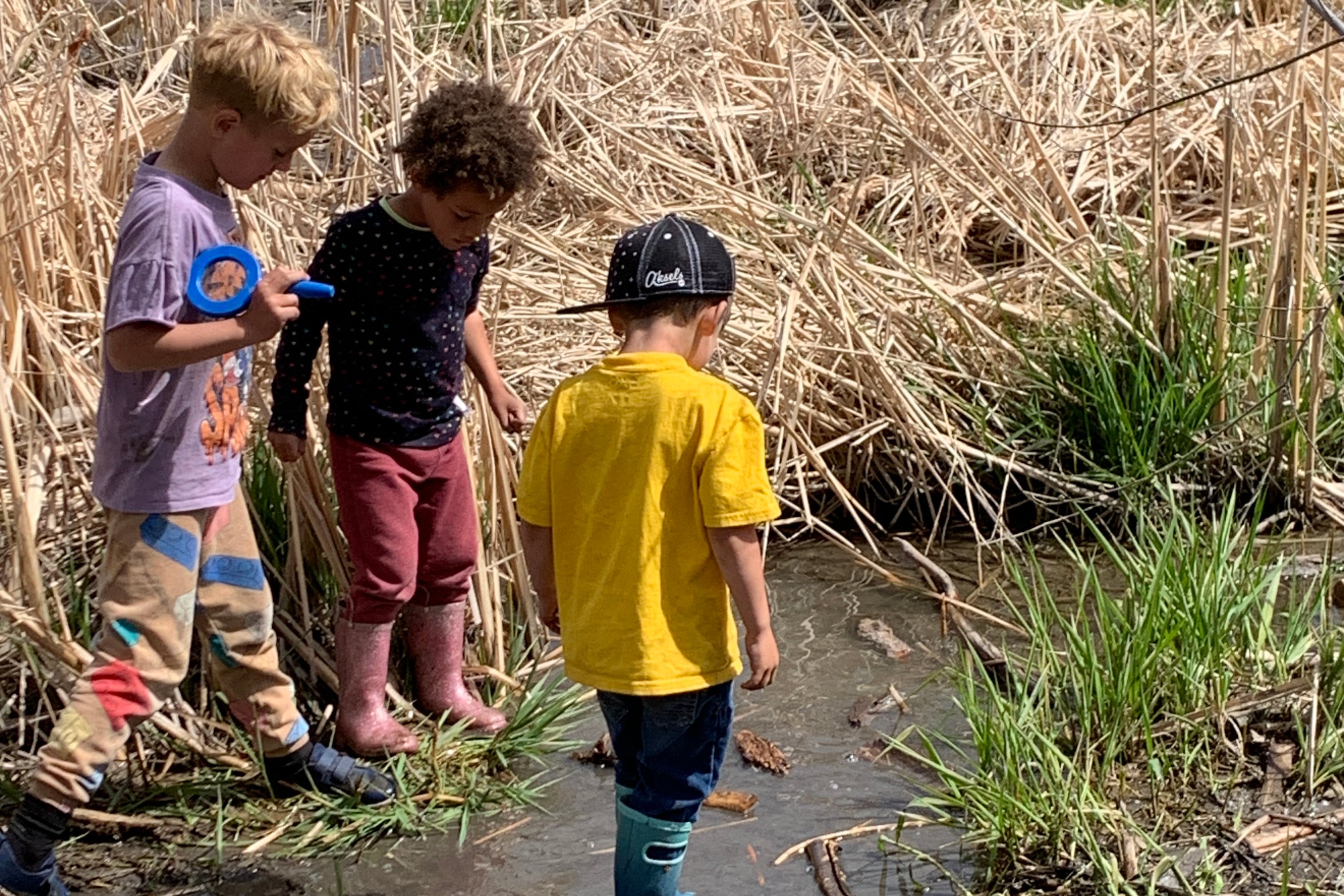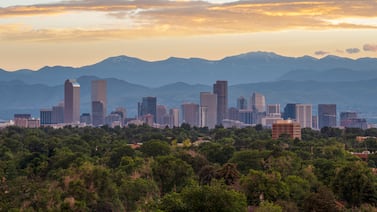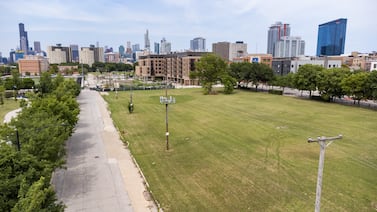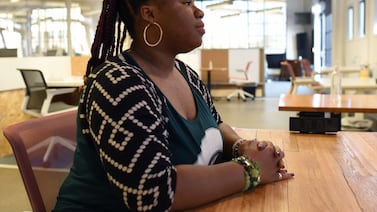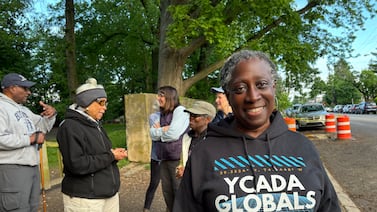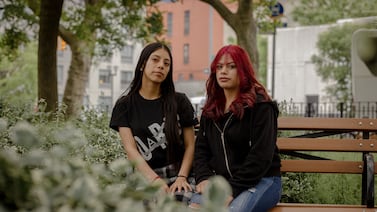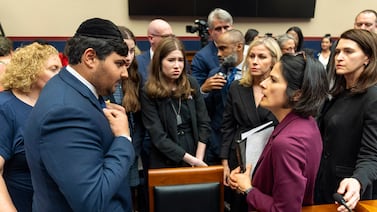Sign up for Chalkbeat Colorado’s free daily newsletter to get the latest reporting from us, plus curated news from other Colorado outlets, delivered to your inbox.
Fourteen preschoolers sang “Eggs, larva, pupa, adults,” on a recent morning, curling up on the grass, wriggling around like caterpillars, lying still, and then flapping their arms in search of wildflowers.
The song, along with redwing blackbird calls and a bit of traffic noise, was the soundtrack of their morning circle, which kicked off near a wetland in southeast Denver.
The children weren’t on a field trip. They were attending preschool outside like they always do, under the supervision of teachers from Nature School Cooperative. It was early May and, although the 3- and 4-year-olds didn’t know it, a momentous week for schools like theirs.
Colorado lawmakers were about to pass a bill that would allow outdoor preschools — sometimes called forest schools — to be recognized with state child care licenses adapted to their format.
Advocates say the great outdoors is an ideal classroom, giving young children the chance to move freely, learn about the natural world, and assess risks and solve problems in a way indoor classrooms don’t allow. They say licensing will open the programs to a wider swath of families by unlocking public dollars available through Colorado’s universal preschool and child care subsidy programs.
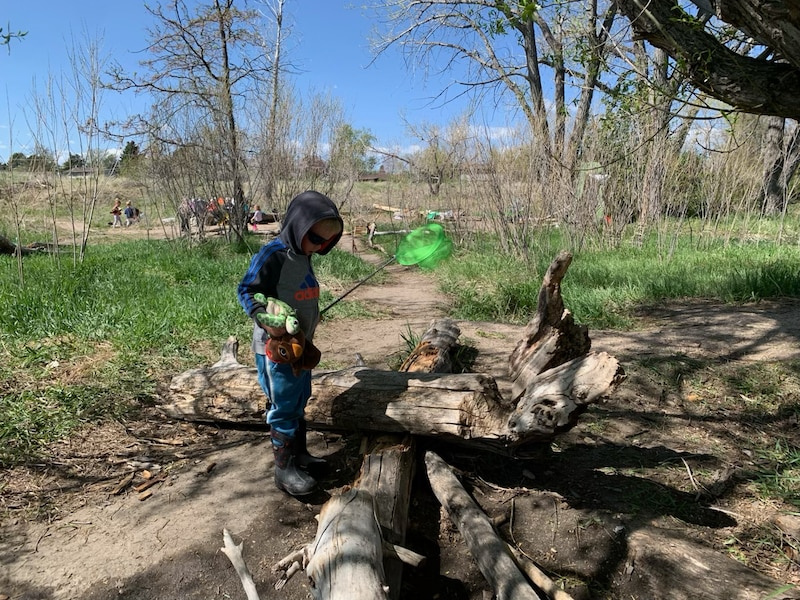
Candace Johnson, whose two children attend Nature School Cooperative five days a week, said the school is a big expense, but worth it because her kids get so much out of it, even on cold, snowy days
She said it would be “invaluable” if the schools could be licensed and access funds to cut costs for parents.
Gov. Jared Polis is expected to sign the bill, which received support from some Republicans, into law in the next few weeks. Colorado will then become the second state after Washington to license outdoor preschools. State officials still have to hammer out detailed rules, so it will be a year or two before Colorado begins handing out licenses.
In the meantime, advocates are celebrating the creation of a clear, state-approved pathway for outdoor preschools.
“We are just very excited and thankful,” said Jennifer Kollerup, who heads the Colorado Collective for Nature-Based Early Education.
Ryan Pleune, who co-owns Nature School Cooperative, said he was thrilled when lawmakers passed the bill. He hopes someday his program can be tuition-free for every family.
State rules aren’t tailored to outdoor preschools
Matt Hebard cried when he was testifying in support of the outdoor preschool bill in February.
He began pushing for state recognition for outdoor preschools more than a decade ago, when he worked for what was then Colorado’s Office of Early Childhood and is now the Department of Early Childhood.
“It just didn’t really get a whole lot of traction,” said Hebard, who now lives in Alaska.
In 2020 Hebard founded Denver Forest School, an outdoor school that serves more than two-dozen children ages 2 to 7 at Bluff Lake Nature Center on the city’s eastern edge.
It’s one of about 45 outdoor early childhood programs in Colorado, according to Kollerup. Some, called hybrid programs, operate in a building part of the time and outdoors part of the time and have a traditional child care license.
Others operate entirely outdoors and follow rules that make them “license exempt” — for example, by having only four children in the group, requiring parents stay for the session, or focusing on a single skill the way a gymnastics class does.
But these arrangements are more or less workarounds since the highly regulated child care licensing system was never designed for outdoor preschools. And since license-exempt programs aren’t generally eligible for public funding, most families have to pay full tuition.
In Washington, which began licensing outdoor preschools in 2019, 17 such programs are licensed. Together, they have space for about 330 children, and 57 children enrolled in them receive state child care subsidies, according to a spokesman for the Washington State Department of Children, Youth, and Families.
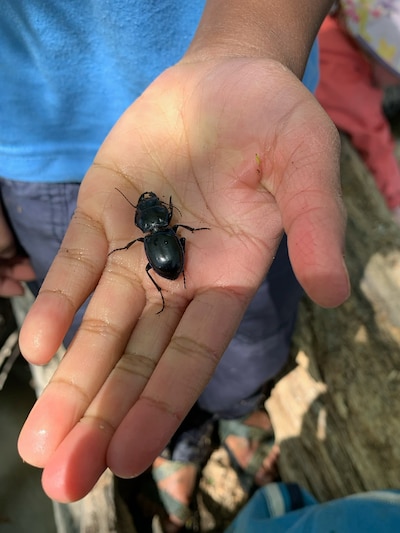
Colorado officials say new rules for hybrid programs and part-day outdoor programs will be finalized by the end of 2024, with licenses available in early 2025. Licenses for full-day outdoor programs will take until 2026, in part because rules will be customized based on each program’s geographic location and features. The outdoor preschool bill includes $260,000 for 2024-25 for new licensing specialists who will focus on full-day outdoor preschool programs.
“This legislation actually gives us that staffing and ability to do those site-specific risk-benefit analysis and risk mitigation plans,” said Carin Rosa, director of the licensing division at the Colorado Department of Early Childhood.
The ability to get licensed could bring a variety of benefits to outdoor preschools, including allowing them to enroll more children, extend their hours, and serve more low-income and working families. Licenses may also grant more flexibility in what children can do, potentially allowing activities like tree-climbing, using sharp tools, or gathering around a fire pit.
Although some parents worry their kids will end up miserable in bad weather — with cold hands or wet feet — outdoor educators say with the right gear and planning, that rarely happens.
Parents see the benefits of outdoor schools
Johnson grew up in Houston, a city she remembers as full of concrete. Even when her family moved to Minnesota, aside from fishing once in a while, they didn’t do outdoorsy things. Her parents spent most of their time working.
“We never did vacations, we never went to cabins — that just wasn’t something that we did,” she said.
Johnson, who is Black, wanted to make sure her children felt at home in the outdoors in a way she never did growing up. Nature School Cooperative provides that, giving her 4-year-old and almost-3-year-old the chance to play in streams, jump off rocks, and develop resilience to whatever the day throws at them.
“This school goes above and beyond to make it an inclusive space and make people feel it’s for them,” she said.
The school’s ethos has rubbed off on Johnson. She’ll sometimes use the “deers ears” hand gesture to get her children’s attention when an argument is brewing. She’s also let go of her need for control in every situation, taking “a leap of faith that they can handle things that are challenging.”
Zac Sigl’s 3-year-old son Leonardo attends Nature School Cooperative one half-day a week and a traditional preschool run by the Denver school district the other four days.
Outdoor preschool is his favorite — he likes pulling on his yellow rain boots, digging in the dirt, and climbing anything he can. Sigl said they tried gymnastics, but Leonardo couldn’t focus on it and made a game of running away from the class.
That doesn’t happen when he’s at outdoor school. In fact, teachers there told Sigl that Leonardo is a natural leader, staying with the group and helping other children.
“Every single time after picking him up he’s on cloud nine,” Sigl said.
Ann Schimke is a senior reporter at Chalkbeat, covering early childhood issues and early literacy. Contact Ann at aschimke@chalkbeat.org.
